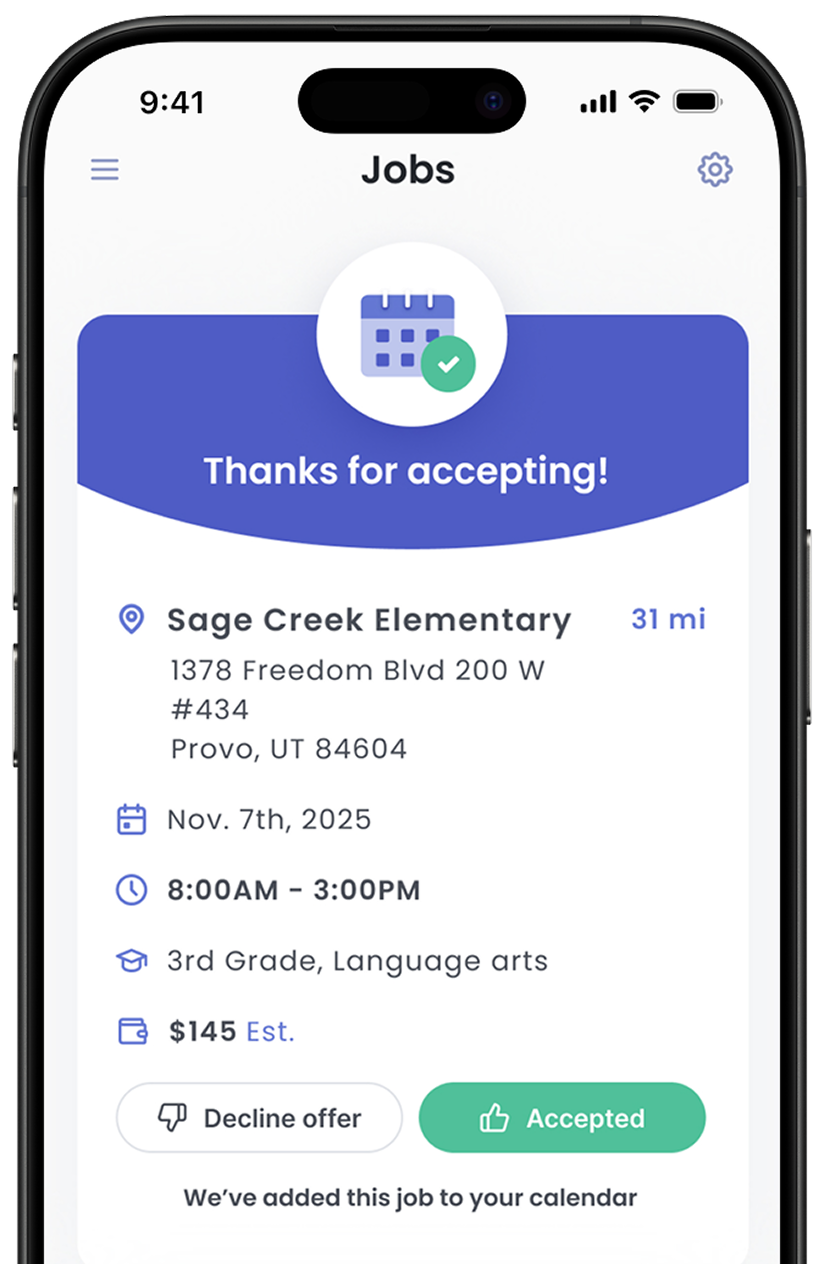Tip 1: Be Flexible
It is important to know that sometimes, schools have staffing changes unfolding just before school begins. You can imagine how challenging this is for everyone; school administrators and staff have to come up with the best plan that they can in minutes.
Although you accepted a certain grade or subject area, you may be asked to cover a different class, or even move around during the day, according to the school's needs. If you are uncomfortable with a change, speak up and see if the school can provide you with support, such as an aide or a helpful teacher nearby.
Being flexible is a fast way to build a positive relationship with a school, and they will want to have you back again and again. Many substitutes get offered permanent staff positions because they are willing to help out wherever needed.
Tip 2: Engage with Students and Staff
Students and staff appreciate substitutes who are actively involved throughout the entire day. Take the time to introduce yourself to nearby teachers and staff.
Don't hesitate to ask for help. While schools depend on substitutes to manage normal classroom activities and misbehavior, schools do not expect subs to handle extreme circumstances.
Subs who remain at the teacher desk or are distracted with personal devices consistently receive lower ratings. Students and staff enjoy substitutes who are friendly, interactive, and interested in the day's activities.
Tip 3: Keep to Planned Activities and Conversations
Teachers and administrators take note of subs who are well-liked by students. These subs are kind, encouraging, and maintain the high expectations that students get from their regular teachers. When subs deviate from lesson plans or classroom expectations, it creates difficulties for students while you substitute, and it also makes it difficult for teachers when they return.
Schools consistently give lower ratings when subs “overshare,” such as giving too many personal life details or telling too many side stories with students. Sharing a few things about yourself during an introduction is sufficient, and the remainder of class should keep conversations focused on the day's activities.
Tip 4: Offer Support During Prep Time
If the class that you are subbing for has scheduled preparation time (no students in the room), schools appreciate subs who check in with the office and offer to support during that time. You may be asked to help run some copies, to be an extra set of eyes during a recess, or to help out with some other need. Even if the office does not need any support during this time, your offer will not go unnoticed––schools appreciate substitutes who look for ways to help out.
Tip 5: Leave Detailed Notes for the Teacher
For each class or class period, write down important notes for the teacher, such as how students did with the lesson, how much of the lesson was completed, standout students, and any significant discipline issues.
Make sure to include the positives in your notes; although it is important to share about any discipline issues, teachers appreciate knowing about the successes as well and often reward students/classes for receiving a good report from substitutes.
.png)




